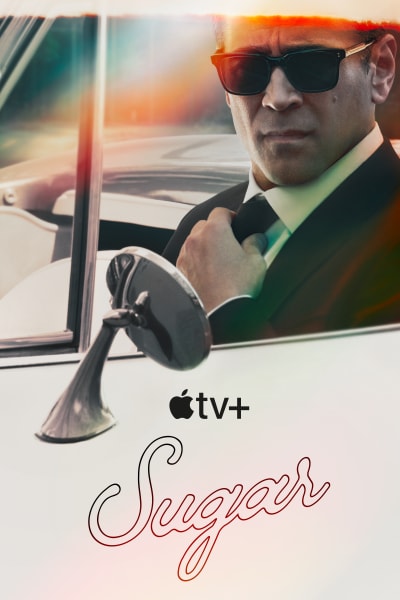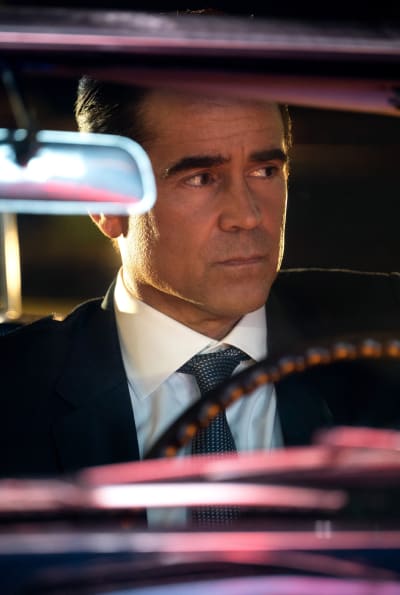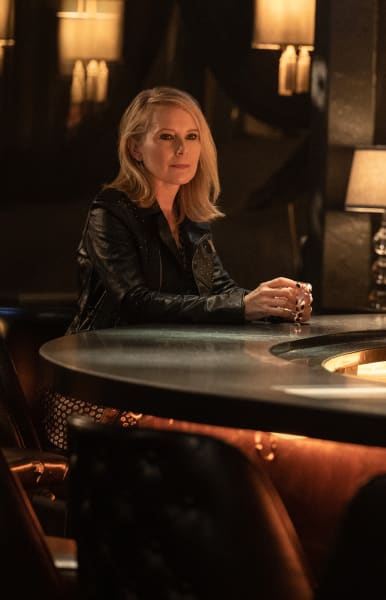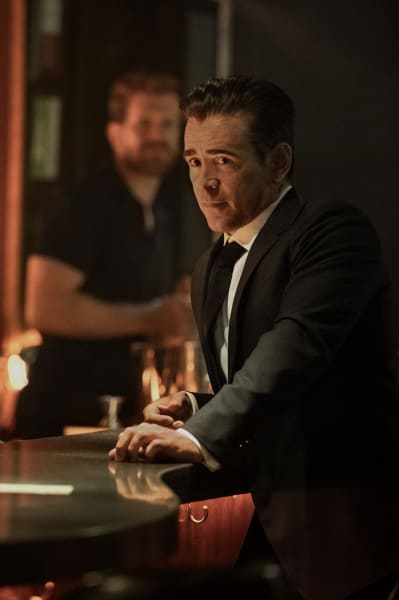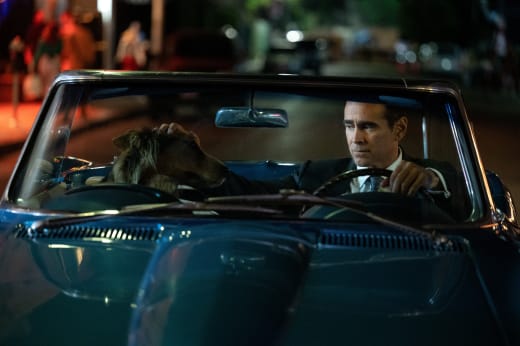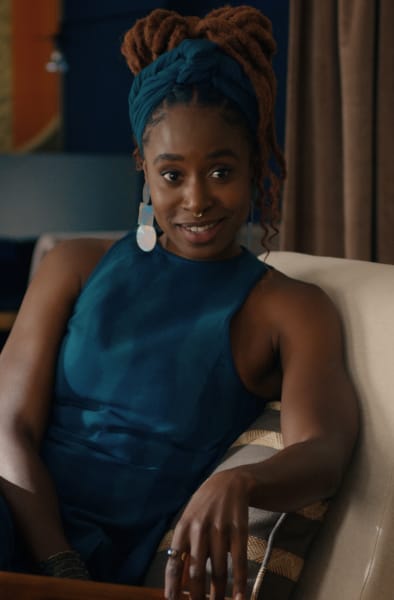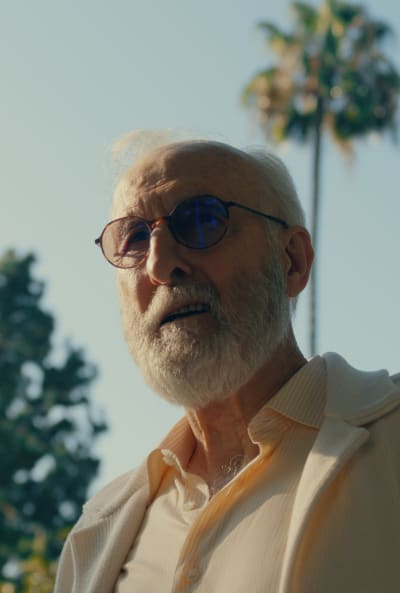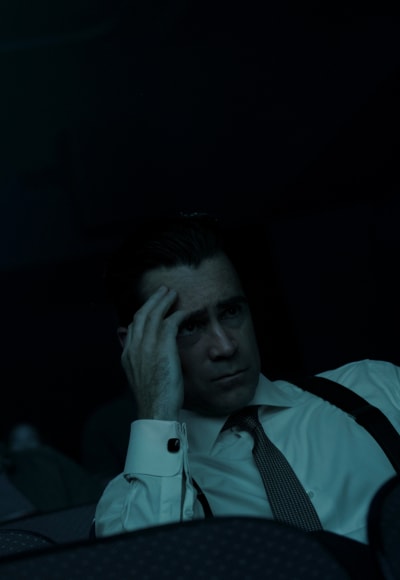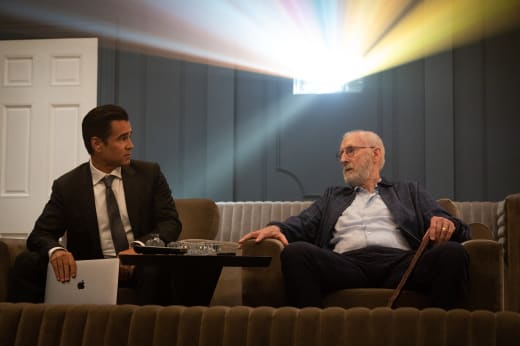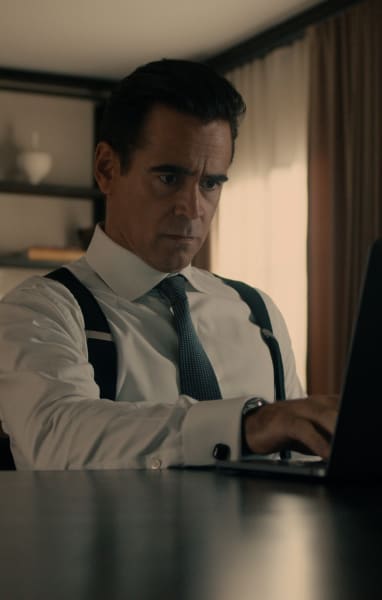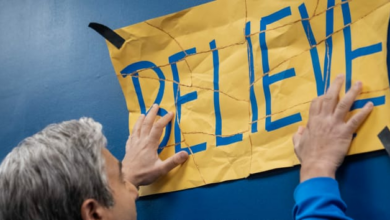Sugar Series Premiere Review: Colin Farrell Embodies a Classic PI with an Air of Mystery
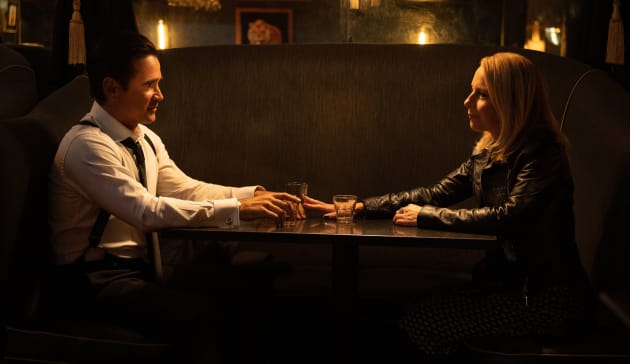
It’s become a catchphrase these days to compare TV to cinema.
Showrunners, stars, and producers often say their work is a long-form movie, as if being on TV is still somewhat taboo despite the soaring success of the medium.
Whether it’s big action, adventurous character arcs, or unbelievable cinematography, some people still find it hard to believe TV encompasses what once made film so unique.
Film stars and directors have flocked to the small screen to take advantage of the generosity of storytelling available, to see characters come to life with every human nuance available.
Experimentation exists on screens, both small and large, but on TV, you can make a different show every week or grow from one genre to another within the same season.
Sugar is a show that boasts incredible talent from every facet of the industry, from its star and producer, Colin Farrell, to his costars, writers, producers, and directors. It’s top-notch entertainment.
It’s also one of the most beautifully filmed pieces on TV, using cinema techniques that play with lighting, trick the eye, and capture your imagination frame by frame.
The detective genre has been a part of our mythos for generations, and if you don’t believe how influential they once were, Sugar is here to remind you.
John Sugar is a slave to film. He reads obscure cinema magazines and pulls references from his favorites to motivate him.
Mr. Spiegel: So, you’re a film buff.
Sugar: Buff? Buff is putting it lightly. It’s more like an addiction.
When the going gets tough, Sugar remembers a keen move from a slick PI who came before him, emulating and expanding on what he’s learned through film.
It’s so prevalent in Sugar the series that early on, it’s easy to get lost in the technique. It might be worth revisiting a scene to see how it affects Sugar lest you lean too heavily on a clip snuggled into the frame.
But then again, if that’s how Sugar evolved into who he is today, their inclusion is every bit as relevant as his own actions.
And John Sugar is a distinctive gentleman. Gentlemen are hard to come by in the 21st century, but Sugar speaks carefully and with consideration.
People recognize in his posture and his gaze that he can be trusted; he’s good. He’s capable. He’s here to help.
I don’t like hurting people. I really don’t. But this is what I mean. A drug overdose. It happens every day. Why do I care? Why do I feel angry? Why do I feel anything at all?
Sugar [internal]
For every flashback to a movie where the hero resorted to violence, there’s a reminder from John’s internal voice that that’s not who he is. He isn’t a violent man. Capturing a fly between his chopsticks is easy for him, but he lets it go just as quickly.
He speaks many languages (it wouldn’t be surprising in the least to discover he knows them all) and has (or finds) an answer to every question.
John Sugar would give the suit off of his back to someone in need, and he’d never take advantage of a human being before him. That’s how he hits it off with Melanie, the stepmother of the titled “Olivia” from Sugar Season 1 Episode 1, who goes missing.
Olivia is a wealthy and privileged socialite who spent so much time in rehab that her family doesn’t even care that she’s gone missing. Her grandfather, Jonathan, knows better, but he’s hard-pressed to get anyone else to care for him.
Bernie: I gotta tell ya, Sugar. I think you’re wasting your time and my father’s money. Olivia will come back any day now, just like she always does, ready to go to rehab again.
Sugar: If I was her father, I’d find that concerning.
Bernie: You’re not, and I don’t.
Sugar: Your father does.
So John is enlisted to find Olivia, and as the clues pile up, it begins to look like the family who doesn’t miss her could be hiding something.
It’s not happenstance that Sugar runs into Melanie. As the ex-wife of Olivia’s father, Bernie, she’s important to his investigation. But as soon as their paths cross, something else comes to light — a friendship and the beginning of something much bigger than expected.
Before the end of Sugar Season 1 Episode 2, it’s clear that John Sugar is not your average guy or even your average private investigator. There is more lurking under the surface.
People are taken with him, but he’s taken with people, too. Maybe that’s what it takes to have the power of persuasion — an understanding of who’s before you and an unexpected kinship that takes you both by surprise.
It’s not only people. Wiley the dog, bless his furry soul, also innately knew he could trust Sugar. And what befell Wiley’s pal hurt Sugar to his very soul.
Sugar is also unique in the private eye works in that he has a handler. Sure, Perry Mason had Della Street, but it was hardly the same. Ruby watches Sugar carefully and with concern over his mental and physical well-being.
As his hand spasms and weakens, he shakes it off, but Ruby’s concern is genuine. What isn’t easy to tell is if it’s genuinely for him or for another purpose. The way she handles him is somewhat unsettling — as if he’s a child.
If Sugar is more capable than most, he’s also very cautious. He’s not overtly emotional, although his internal thoughts, which he’s constantly jotting down in a notebook, betray that notion.
That concerns Ruby more than anything. This case. This case, she keeps saying. It’s not good for him. Ruby wants him to carry a gun, but he won’t. How she gets him to take it proves how well she knows about him. Dangle that cinema-tinged carrot to do the job.
Why would she want a man with a spasming hand to carry a gun, whether he’s being tailed or not? It’s unwise, and although he’s consistently calm, trepidation around a firearm could lead to misuse. Why take the chance?
Whatever is wrong with Sugar is severe enough that he has a special serum to keep him straight. At first, I thought heroin. But you don’t shoot it into your neck.
There is definitely something off about Sugar. As kind, compassionate, and capable as he is, he’s also walking on a tightrope.
He speaks repeatedly about his sister Jen, and it’s not a stretch to imagine she’s gone missing, which fortified his determination to right by others.
The way John eyes the full moon makes you wonder if he’s a werewolf or some otherworldly creature. It doesn’t help to see the vampiric syringe case and serum encased in crystal.
The episodes play as a facade to the real story that’s behind, hidden from our view. Honestly, I like it that way. It’s familiar, but the ground beneath our feet feels unstable. You can’t help thinking, when is a private eye more than a private eye?
Farrell has long been one of my favorite actors. His performance in Martin McDonagh’s In Bruges was one of the most moving I’ve witnessed. The way he captures a bad man’s innocence, humor, and pain is revealed with each repeated viewing.
Recapturing the magic he had with costar Brendan Gleeson (who had his own TV investigatory turn in Mr. Mercedes) in Banshees of Inisherin practically tore my heart in two.
As John Sugar, Farrell utilizes many of the same skills he accessed for those roles, but with less emotion. Here, he plays it cool, emoting through voiceovers, which we cannot pick up from his expressive face.
It’s easy to see why this character and story appealed to him, and bringing his big screen magic to the small screen suits the series and Sugar’s love of cinema perfectly.
Of course, for every PI, there must be a foil. The most significant throughout the premiere episodes are Davy (we’re not calling him David) and his pal, Kenny.
Davy is Olivia’s half-brother and a former child actor short on common sense. Kenny props him up for sure. He’s competent and is probably paid well enough that it’s easy for him to make Davy feel safe and smart in his choices.
It helps when they’re stupid. It’s not as much fun, but it moves things along.
Sugar [internal]
It’s strange that Bernie uses his son like this, though. It’s as if he’s giving Davy something to do to keep his mind occupied. You almost feel embarrassed for Davy, the lonely former child star who needs his dad to keep him on the right path.
Then again, Sugar has Ruby, so maybe they’re not so different after all.
Olivia’s case of falling into Sugar’s lap is like a dream. To stand among a family that brought so much to audiences through film when you’re a film buff is quite a treat.
As this one-time HR manager can tell you, when your love of something becomes part of your life regularly, it’s a real kick in the pants.
It’s like worlds colliding for Sugar, his career and his passion melding into one. And at the core of it, he discovers a friendship ripe for the taking.
Melanie has been through a lot. A former rock star and alcoholic, it can’t be easy for her to trust others. Still, before the barkeep could finish telling Sugar how much Melanie dislikes strangers, they were already more than acquaintances.
Melanie: But you know, deep down, you’re lonely. You don’t have a wife or kids or home. You choose to be alone. But there’s hope for you, John Sugar.
Sugar: Is there?
No, Sugar isn’t a normal man or a regular PI. He’s an observer, a phrase that harkens back to Fringe, with the same results. Observers are otherworldly. They don’t intervene but soak everything in.
But Sugar is intervening, and not just by way of his profession. He helps the downtrodden. He connects with those he questions. He makes friends with hotel staff and asks after family members as if they’re his own.
What does creator Mark Protosevich want us to understand by choosing so many specific film references, not just correlating to the private eye genre?
This quote, in particular, from Minnie and Moskowitz, ruffles your viewing feathers.
You know, I think that movies are a conspiracy. I mean it…. They are actually a conspiracy because they set you up, Florence. They set you up from the time you were a little kid. They set you up to believe in everything. In ideals and strength and good guys and romance and of course, love. Love, … There’s no Charles Boyer in my life, Florence… I never met Clark Gable, I never met Humphrey Bogart. I never met any of them… You know who I am. I mean, they don’t exist, Florence. That’s the truth.
Minnie [from Minnie and Moskowitz]
Is this a message to us through John Sugar or from Protosevich himself? Are we supposed to question what we see and wonder what’s real, or is that for John to do?
My bet is it’s for us, making this adventure ever more colorful and worthy of our attention.
Carissa Pavlica is the managing editor and a staff writer and critic for TV Fanatic. She’s a member of the Critic’s Choice Association, enjoys mentoring writers, conversing with cats, and passionately discussing the nuances of television and film with anyone who will listen. Follow her on X and email her here at TV Fanatic.


